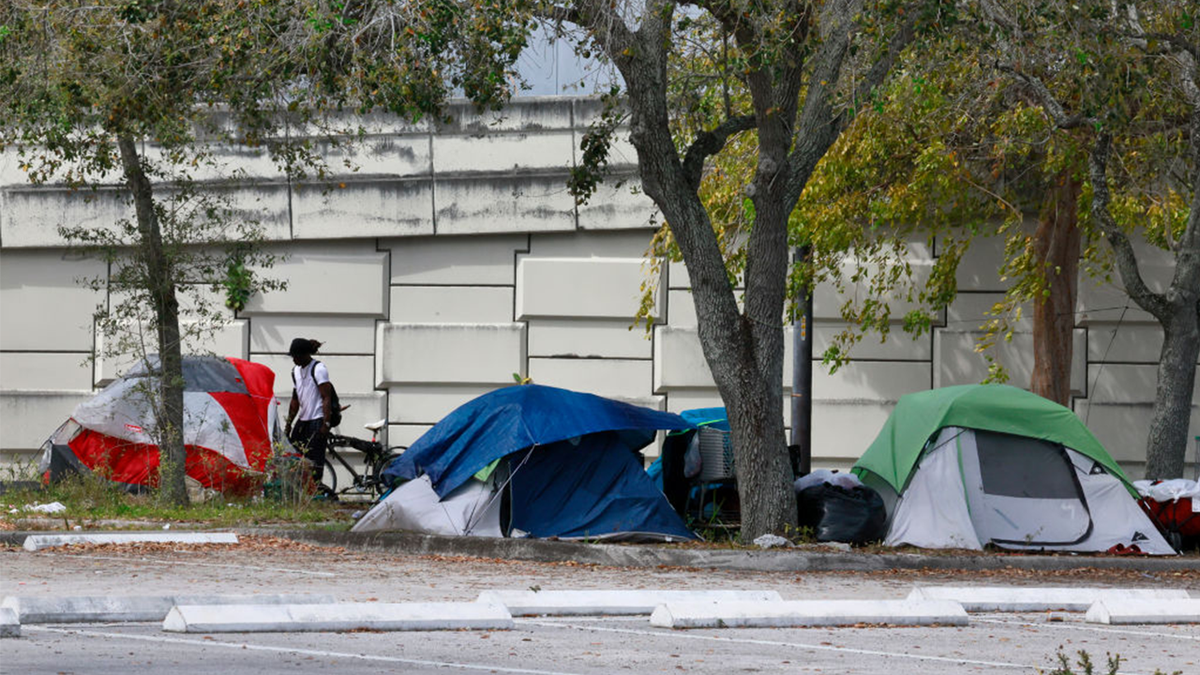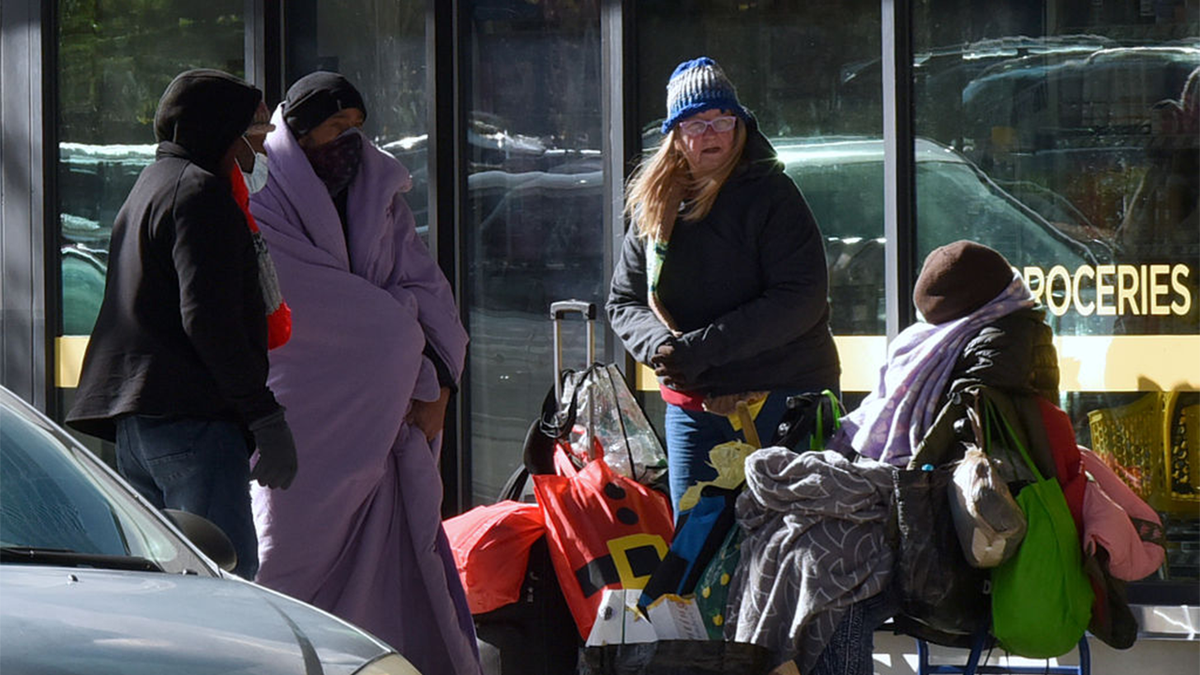
Florida House lawmakers passed a bill on Friday that would prevent homeless people from sleeping in public and require local governments to fund homeless camps.
H.B. 1365 passed the Republican-controlled House 82-26 in a near party-line vote. The legislation is supported by Republican Gov. Ron DeSantis, who said it is a way to “combat homelessness and keep Florida’s streets clean.”
“We’re not going to let Florida become San Francisco where homeless are everywhere,” DeSantis said last week.
The bill would also make it easier for residents and business owners to challenge local officials over how homelessness is addressed, according to The News Service of Florida.
SQUAD MEMBER TLAIB PROPOSES PILOT PROGRAM TO PAY SOME HOMELESS PEOPLE $1,400 PER MONTH FOR 3 YEARS

Florida House lawmakers passed a bill on Friday that would prevent homeless people from sleeping in public. (Getty Images)
The Florida Senate is expected to take up a similar proposal on Monday.
House sponsor Sam Garrison, R, admitted the measure “isn’t going to eliminate homelessness,” but said current initiatives to address homelessness are not working.
“This is not a bill designed to put people out of sight, out of mind. It’s quite the opposite,” Garrison said on the House Floor.
Garrison said the goal is to keep Florida cities from becoming like San Francisco and other U.S. cities with a homelessness crisis.
“The status quo is not acceptable,” he said. “When it gets to a point where the problem exceeds the resources to address it, the cost of dealing with it on the back end is inevitably 10 times what it would be on the front end.”
Florida had the nation’s third-highest homeless population as of 2022, with nearly 26,000 people. That same year, San Francisco had a homeless population of nearly 8,000.
For two months during the coronavirus pandemic, Tampa attempted to designate a two-month homeless camp for homeless people. City officials told Fox 35 that it costs roughly $60,000 monthly for every 100 homeless people. At about $600 per tent, this costs $720,000 per year.
HOLLYWOOD RESIDENTS GROW FRUSTRATED WITH LOCAL LEADERS OVER HOMELESS PROBLEM

A homeless man sits next to his makeshift shelter on a sidewalk in Miami. (Getty Images)
The bill would bar cities and counties from allowing people to sleep on public property, including at public buildings and in public rights of way. The proposal would also allow local governments to designate certain areas for sleeping or camping if the locations meet standards established by the Florida Department of Children and Families.
These designated areas would have to include restrooms and running water, security and be alcohol- and drug-free. The sites, which could only be used for a year, must also not harm the safety or value of nearby properties.
“With no security, with no basic sanitation, with no access to behavioral health services for folks who have been ravaged by drug abuse and mental illness…the answer is let’s get a home for everybody,” Garrison said. “If we do nothing for these folks, that is unacceptable,”
Rep. Ralph Massullo, R, said the bill would start to clean up streets while at the same time providing safe shelters and mental-health services.
“Will you all have to come back here next year and do some more work? Possibly,” Massullo said. “But when the cities aren’t acting, the state needs to, and that’s our responsibility.”
Democrats say that without state funding to support the bill, it would increase local government costs and force homeless people into wooded areas.
Rep. LaVon Bracy Davis, D, said the bill attempts to criminalize homelessness while “bullying municipalities and counties into doing what we want them to do.”

A group of homeless people keep warm with blankets and winter clothing in front of a downtown business in Orlando. (Getty Images)
“We must acknowledge that pushing the unhoused out of sight isn’t a solution. It is a failed attempt to sweep a societal problem under the rug,” Bracy Davis said.
Rep. Anna Eskamani, D, said lawmakers should prioritize “robust investments in transitional housing and shelters. But no, instead, we want to designate a location that’s probably going to be really hard to identify.”
The bill would also provide residents and business owners with standing to file civil lawsuits against local governments for allowing illegal sleeping or camping on public property.
CLICK HERE TO GET THE FOX NEWS APP
Some counties would be exempt from certain requirements under the proposal if these requirements would create financial hardship.
The House rejected a series of amendments on Thursday that had been proposed by Democrats, including banning perpetrators of domestic violence from being allowed in the designated homeless areas and allowing the areas to remain in place for more than a year.







